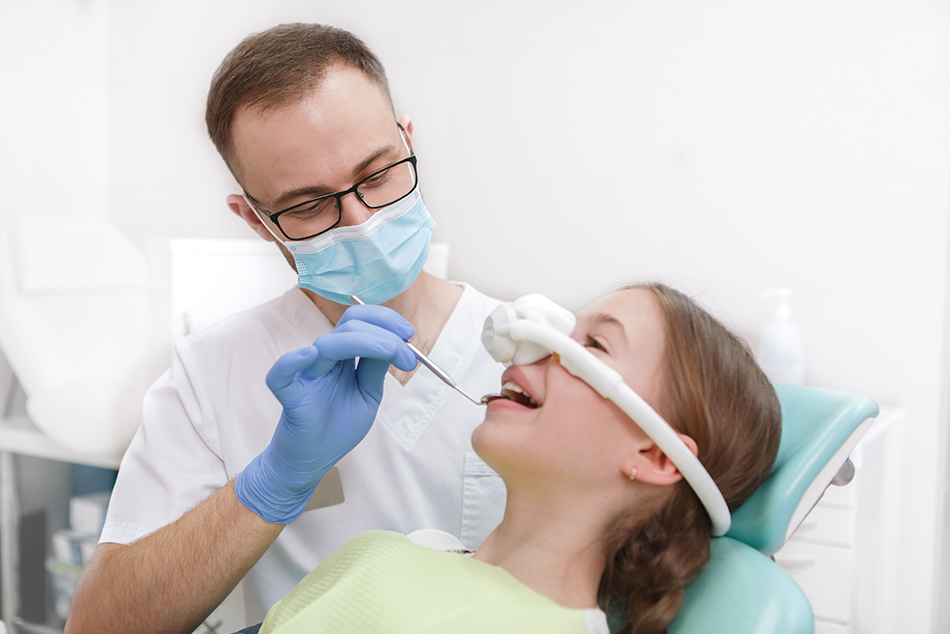
Various medications can be used to sedate a child; medicines will be selected based upon your child’s overall health, level of anxiety, and dental treatment recommendations. Once the medications have been administered, it may take up to some time before your child shows signs of sedation and is ready for dental treatment. Most children become relaxed and/or drowsy and may drift into a light sleep from which they can be aroused easily. Unlike general anesthesia, sedation is not intended to make a patient unconscious or unresponsive.
Moderate sedation/analgesia, also known as “conscious sedation”, is a drug-induced depression of consciousness.
Patients respond purposefully to verbal commands, either alone or by light tactile stimulation. (Note: withdrawal from painful stimuli is not a purposeful response).
Some children may not experience relaxation but an opposite reaction such as agitation or crying. These also are common responses to the medicines and may prevent us from completing the dental procedures. In any case, our staff will observe your child’s response to the medications and provide assistance as needed.
You, as parent/legal guardian, play a key role in your child’s dental care. Children often perceive a parent’s anxiety which makes them more fearful. They tolerate procedures best when their parents understand what to expect and prepare them for the experience. If you have any questions about the sedation process, please ask. As you become more confident, so will your child.
Minimize physical pain, discomfort and negative psychological responses by providing sedation, amnesia and analgesia, as needed, during painful or uncomfortable procedures.
Assure rapid safe return to highest possible health status following a procedure.